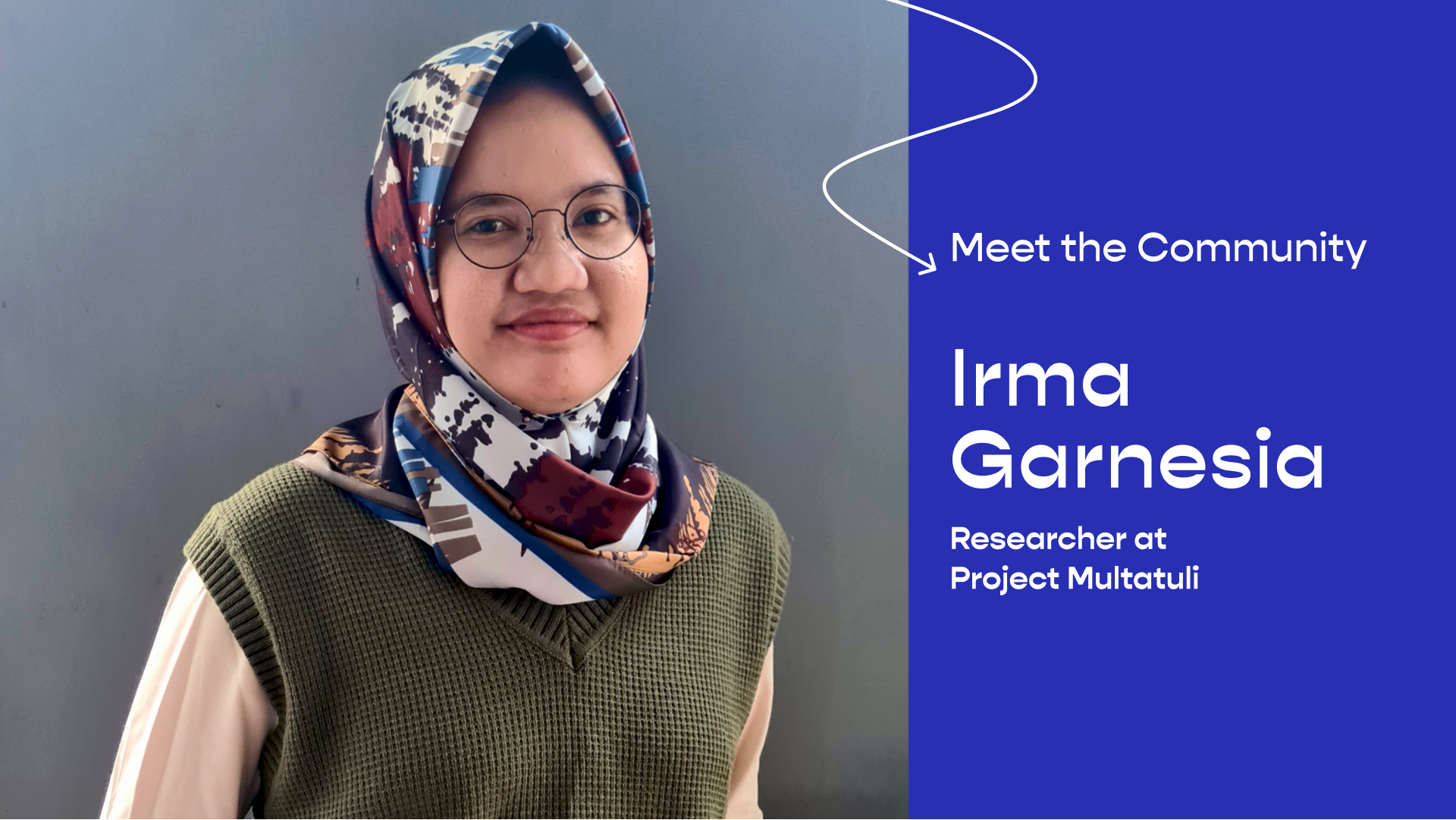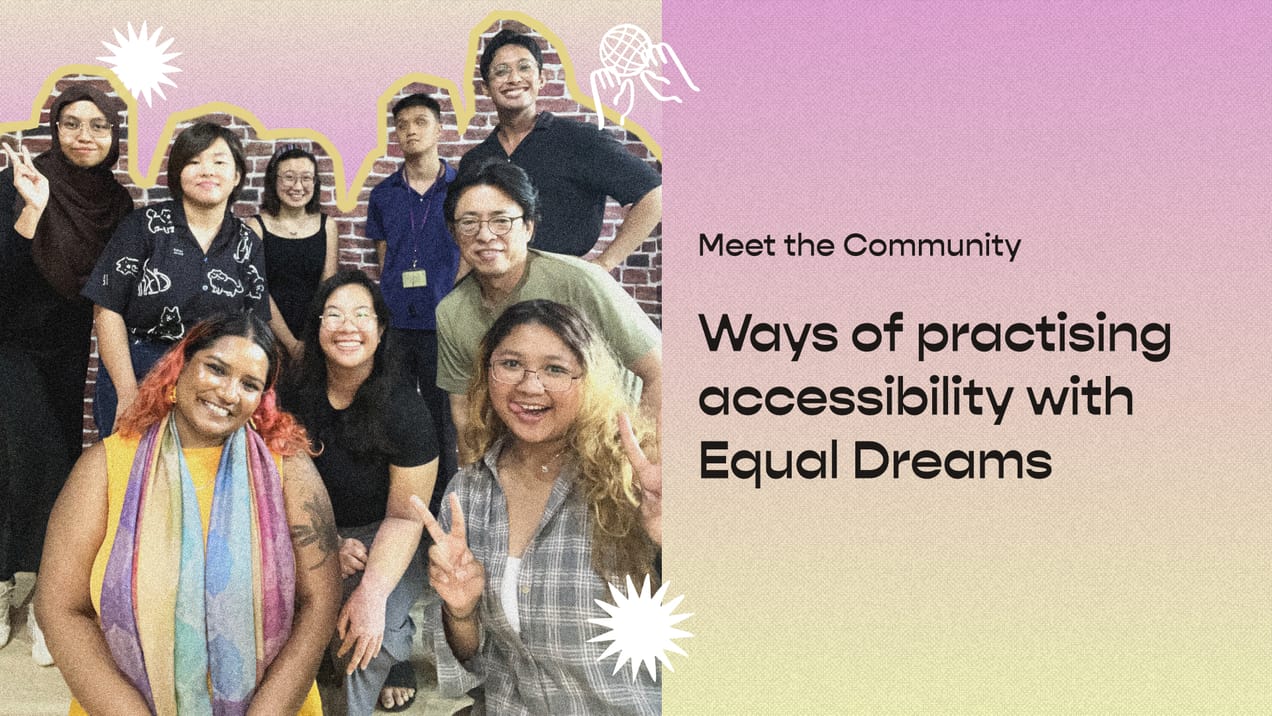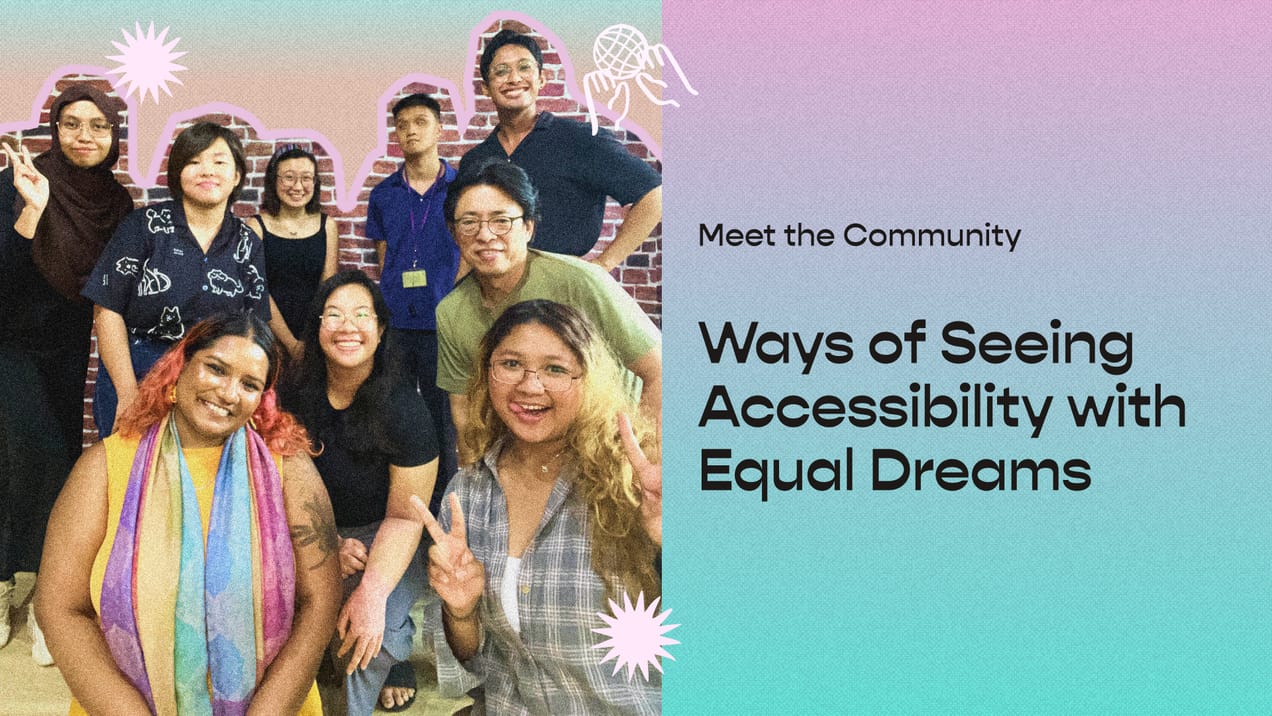
Meet the Community: Irma Garnesia
Thank you for making time to have this little chat with me, Irma. First things first—how has life been like as a "recovering fact checker", as you mentioned in your LinkedIn post?
(laughs) Thank you for having me, Angel. I’ve been transitioning through jobs—I moved from Tirto to Project Multatuli, an investigative news outlet based in Jakarta, Indonesia. I’m just learning how a news outlet works while writing my term papers. I’m also studying for my Master's in Germany.
How were you able to make the transition from focusing on pure journalism to more research and fact-checking work during your time at Tirto?
I mostly did academic research in university in 2017. In 2018, a relatively new news outlet called Tirto.id was looking for researchers. They mainly provided training for journalists to do newsroom research and how to integrate data into their reporting. In the first six months, I was trained to work with Indonesian statistical data, ministerial data, reports published by the House of Representatives, and financial reports.
At the time, Tirto was Facebook’s third party fact-checking partner. They previously had one fact-checker who left in 2019, so I was basically appointed to do his job. I soon adjusted to the job, which was about checking for potential political misinformation. There were political buzzers who would make certain posts to mislead the public when it came to topics such as elections andvaccinations. Until 2020, Tirto only had one fact-checker. As we are a small newsroom, we don’t operate that much.
Could you briefly describe the contrast between being a journalist and being a fact-checker or researcher? I know a lot of people tend to lump them together or think that newsrooms can function without the latter.
Basically, I do everything, which includes desk research, writing data journalism articles, and fact-checking.
Fact-checking in conventional journalism involves journalists verifying facts. They check every source and document, and even interview others if necessary. But we mostly deal with false social media content. As fact-checkers, if we see social media content that is related to important topics like politics, health, or religion, we are trained to doubt the content first and look out for misinformation, such as misleading pictures or data that could influence people to do harm.
Thanks for explaining! I also wanted to ask if there’s a process that you follow—any common step-by-step procedure that you adhere to when you’re fact-checking? Or does it depend on the issue that you’re trying to debunk?
While conventional journalists fact-check every single document and use primary interviews as sources, we take advantage of online tools for verification. For example, we use Yandex, Google Images, and Google reverse search to check if an image has previously been used somewhere else or omits context that leads to misinformation. We also check videos with tools like InVID and check spatial data using Google Maps and Google Earth.
Let’s move on to another part of your very illustrious career! How did you end up at Journocoders?
In 2018, a colleague of mine had just returned from studying her Master’s [in data journalism] at Goldsmiths, University of London. At that time, I was a new researcher—my editors encouraged me to join one of their meetups which I ended up going to every month because I found it really interesting. We got to speak to [the founder’s] friends from The Guardian or The Economist about how they do data journalism. This was really new at the time—in Indonesia, we didn’t even know the term “data journalism”. But [in Journocoders], we got to learn about the problems journalists faced in integrating data into social media visuals. It didn’t even require fancy tools! It was just nice that everyone was joining these meetings and learning together back then.
What would you say are some of the challenges of being a data journalist in Indonesia, and how do you think organisations such as Journocoders can help to fill any gaps?
I regularly joined Journocoders’ meetups and then in November, Aghnia [the founder] asked me to be one of the volunteers. In 2019, she asked me to join her open class at a local university in Solo, Indonesia and share my skills with local journalists. I shared with them [about how to deal with] problems that arise in data journalism.
Newsrooms here tend to load journalists with 15 articles a day, which prevents the production of comprehensive data stories. It takes time to analyse the data, clean it, visualise it, and write about it. As a teacher, I’m always honest with them [about the time requirement]. I’m aware of the privilege I have, as my editor gives me a lot of time to produce a story.
Another issue is infrastructure and technology. Not only is it new to them but what is available to them might not always be high quality. That’s one thing I always consider—I can’t teach too quickly because their devices might have limitations. For example, they can’t always see the different colours in data visualisations.
Government data is also rarely transparent. You would usually have a hard time getting the data because it’s not available on the internet—you might have to go to the city’s local statistics bureau, where they’ll likely give you a physical book. Being in Journocoders means that we often share about things like what limitations do these journalists have in their respective cities? How can we make data journalism work? Every city has their own problems, and every government is not transparent in various ways. That’s what we want to solve together as journalists.
A while ago, you detailed all of the barriers in the data journalism landscape in Indonesia. I also remember reading about how you’ve arranged and attended international conferences, where you’ve been able to speak with fact-checkers from all around the world. Do you remember any similarities and/or differences between what you experience in Indonesia versus what other people experience in other parts of the world?
In 2022, Journocoders held our first Data and Computational Journalism Conference in Indonesia. We had speakers from The New York Times and Vera Files. The latter spoke about fact-checking in the Phililppines.
We knew how American newsrooms differ in terms of their technology—their innovations are really, really great. They could turn data that we didn’t know to use into stories. For example, the sound of New York subways. Here, we still struggle with basic things like how to gather and analyse the data. After we conduct workshops, we kind of expect our participants to use slider visualisations, map stories, and the like, but they usually only create simple charts. Of course, you can have your own definition of data journalism—it could be a very sophisticated story with very aesthetically pleasing visuals. But we have to appreciate that a lot of journalists here, who didn’t know anything about data at all, learnt how to make a chart and even explain it a bit.
If we want to talk about how we can make data journalism mainstream in Indonesia, we cannot just rely on the journalism industry. We have to give training to university lecturers and encourage them to integrate data journalism in the university curriculum. We also have to encourage governments and NGOs to hold open data initiatives so we can be clearer about the data that they have. The media, as well, plays a part in this—if we talk about The New York Times, they have innovation and technology, and often invest in new things. But in Indonesia, we only see data journalism reports sporadically.
Seeing as the Indonesian data journalism landscape is still fairly new, what would you say your wishlist is? In 5 to 10 years' time, what would you want it to look like?
Saying that the state will fund data journalism, or even journalism in general, seems so far away. That’s like a utopia. If the media wants to invest in this new business model, this new innovation [data journalism], that would be great. The media will probably stop making money from quick journalism—I’m sick of it too. I don’t want the quality of journalism to be based on how many people clicks on your story within a week. How are we going to make truly sophisticated reporting, very innovative reports, comprehensive stories, if the goal is only to make it appear first on Google Search? Stop making it only about clicks or SEO.
After all of your great insights about the data journalism landscape, let’s try and return to more personal stuff. Could you fill us in on what your new job is, what you’re currently studying, and what other cool stuff is going on in your life right now?
In October 2021, I got accepted to do my Master’s at Technische Universität Ilmenau. I’m studying media and communication, specifically research in media. This includes studying the government’s communication response during the pandemic. Right now, I’m joining the programme on a hybrid [setup] and that’s really messed up my sleep schedule. (Laughs) Because of the pandemic and the work-from-home [arrangement], I was struggling at first but now it’s more manageable to go to school at night and then write articles right after. I’m on the edge of my third semester and I’m travelling to Germany this coming March to finish my studies.
I just moved into a new role at Project Multatuli, which mostly focuses on marginalised groups that are rarely reported on. They work on in-depth, investigative media and don’t do any daily reporting or flash news in general. At the moment, I’m kind of exploring what data stories we can do at Project Multatuli, such as criticising the government, seeing how the Jokowi administration has progressed in the second term compared to his first, and more. That’s the kind of story I want to build. I previously worked in looking out for misinformation, so now I want to use that skill to explore. Since we are approaching the elections in 2024, I also want to make interactive visual reports of what’s actually happening on the ground—who are the actors being mentioned? What was repeatedly mentioned, what issues can we bring up to make the public more aware of misinformation?
But my current goal is to graduate from my Master’s, because I’m just so sleepy. I need to sleep. (Laughs) Just kidding!


